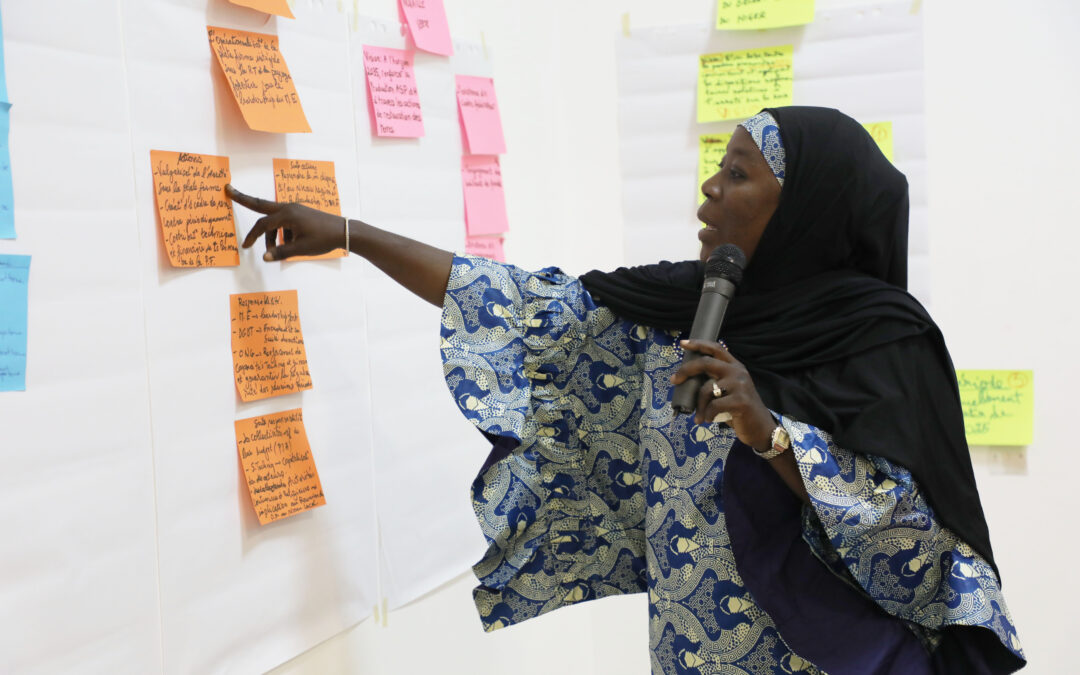By Koffi Gilbertte
Reflections on landscape restoration and opportunities in Niger.
Regreening Africa project partners and stakeholders unpack inclusive and evidence-based approaches to accelerate land restoration in Niger from 25 to 26 October 2022.
One of the major problems in Niger remains land degradation with its consequences that affects people’s lives. “Combating land degradation requires inclusive measures that also reduce poverty, improve food security, sustainable water and sanitation management, economic growth, sustainable consumption and production, adaptation to climate change, and peace and justice,” said Colonel Assoumane Garba – the representative of the Ministry of Environment and the fight against desertification.
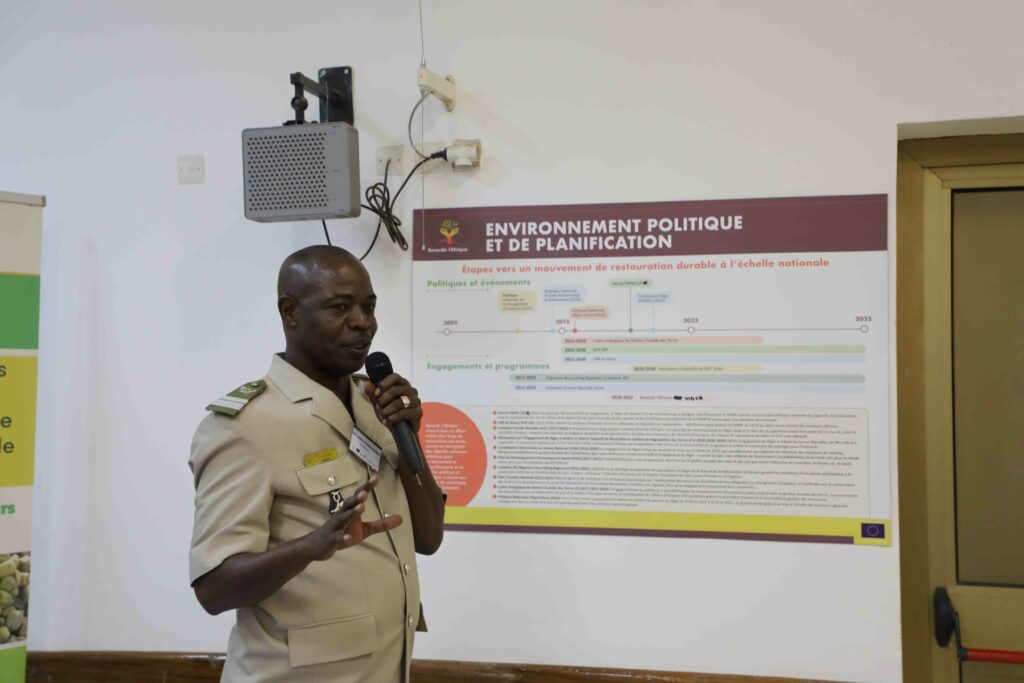 Colonel Assoumane Garba, representative of the Ministry of Environment and the fight against desertification gives a presentation at the workshop. Photo: Regreening Africa/Koffi Gilberte.
Colonel Assoumane Garba, representative of the Ministry of Environment and the fight against desertification gives a presentation at the workshop. Photo: Regreening Africa/Koffi Gilberte.
Since 2017, World Agroforestry (CIFOR-ICRAF) has been implementing the Regreening Africa project in three communes in Niger to reverse land degradation by integrating trees into agricultural systems while improving the livelihoods, food security and climate resilience of smallholder farmers.
The Regreening Africa programme, according to Mieke Bourne – the Programme Manager, aims to restore 90,000 hectares among 40,000 households while also focusing on the data and evidence generated to inform and influence policy decision-making on land restoration. “Within the programme, we track how many hectares and households have been reached. How many of these households have taken up new practices and the benefits of those practices on the land and people.” She added.
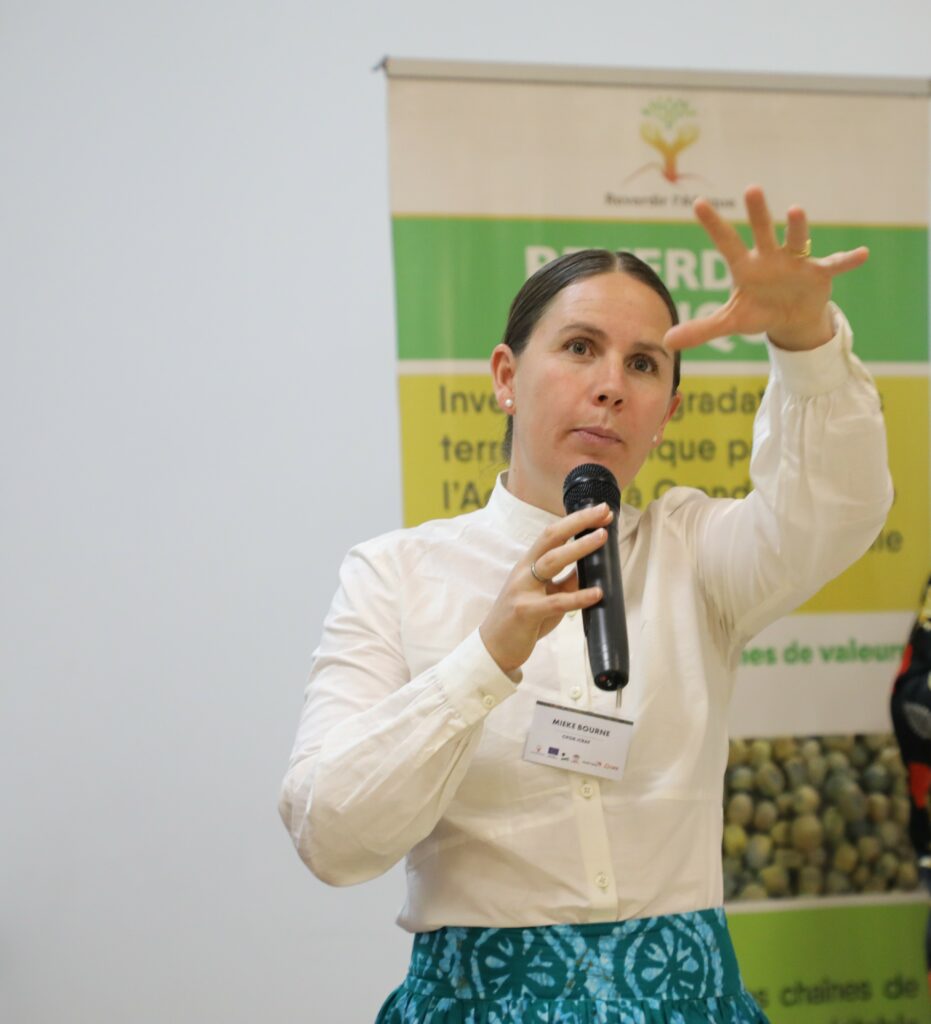
The Regreening Programme Manager, Mieke Bourne, provides an overview of the project. Photo: Regreening Africa/Koffie Gilberte
She also noted the innovative monitoring system accessible through the Regreening Africa App which informs us of “whether the results of land restoration will be achieved or not”. In addition, it also makes it possible to “increase efforts through policy changes and other types of actions in order to achieve the expected results” she stated.
After five years of implementation, the project and its partners World Vision and CARE held a two-day workshop in October 2022 to assess the progress, achievements and lessons learned through its SHARED (Stakeholder Approach to Risk Informed and Evidence-based Decision-making) component. The workshop on “inclusive and evidence-based approaches to accelerate land restoration in Niger” brought together the project’s implementing partners, representatives from national and international institutions, donors, national researchers and CIFOR-ICRAF and representatives from the project’s beneficiary communities.
The workshop, according to Dr. Jules Bayala, representative of CIFOR-ICRAF Sahel, “will provide an overall assessment and an uncompromising analysis of the five years of the project’s implementation”.
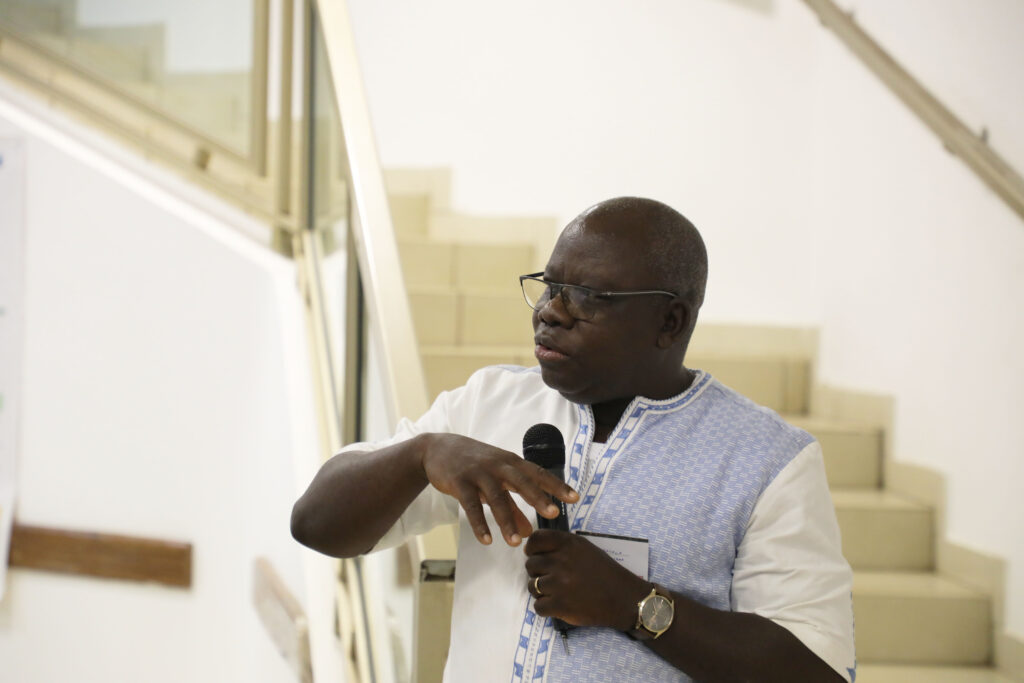 Dr. Jules Bayala, the CIFOR-ICRAF Sahel representative, shares his insights at the conference. Photo: Regreening Africa/Koffi Gilberte.
Dr. Jules Bayala, the CIFOR-ICRAF Sahel representative, shares his insights at the conference. Photo: Regreening Africa/Koffi Gilberte.
Several themes were addressed, including the regeneration of forest resources and commercial products, evidence of exposure and adoption of regreening initiatives and lessons learned. The workshop allowed participants to assess what has been done to intensify sustainable agriculture using context-specific techniques such as Assisted Natural Regeneration (ANR), tree planting, and other agroforestry practices, as well as complementary interventions to sustainable land management. In addition, participants were also able to identify what needs to be done in terms of coordination, synergy, and monitoring of land restoration actions and interventions in Niger, as well as popularising the application and implementation of the ANR decree in Niger.
The European Union (EU) and the government representatives congratulated all the actors who contributed to the results shared during the workshop and urged them to continue their efforts despite the challenges. Sani Rigo, the EU representative acknowledged that, after two years of implementation, Regreening Africa in Niger was the best of the eight countries where the project was being implemented across Africa. “If it is difficult to be better, it is even more difficult to maintain, we dare to hope that this trend has been maintained” he concluded.
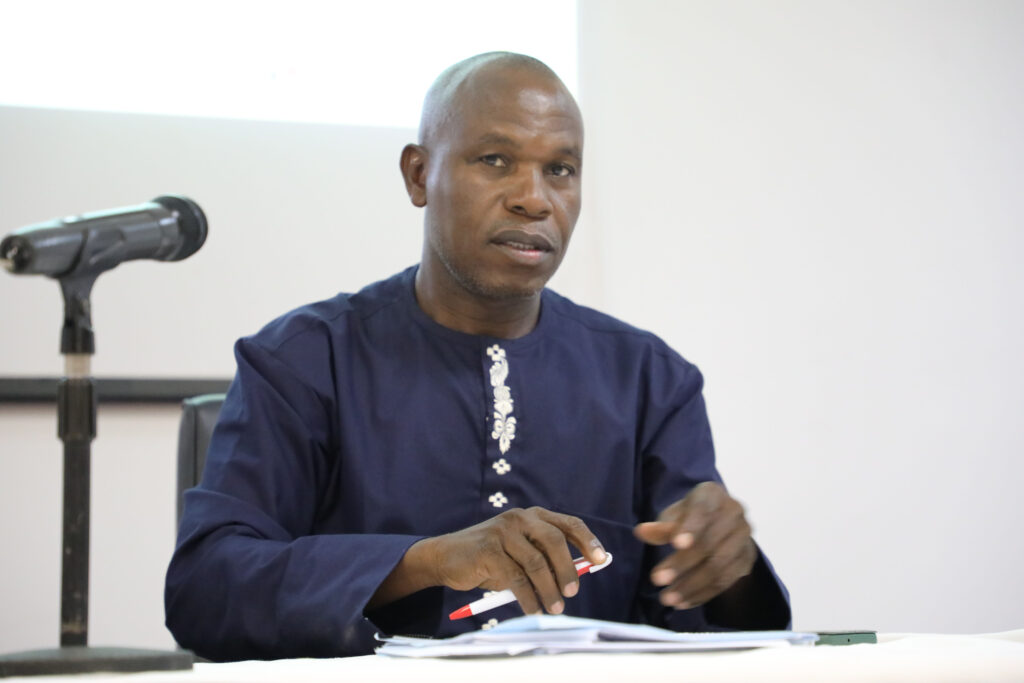 Sani Rigo, the EU representative at the workshop. Photo: Regreening Africa/Koffi Gilberte.
Sani Rigo, the EU representative at the workshop. Photo: Regreening Africa/Koffi Gilberte.
According to Hamed Tchizobo, Project Coordinator at World Vision “this workshop marks the culmination of a huge collective work undertaken since 2017, and also marks the official closing of the field activities of the Regreening Africa project in Niger“.
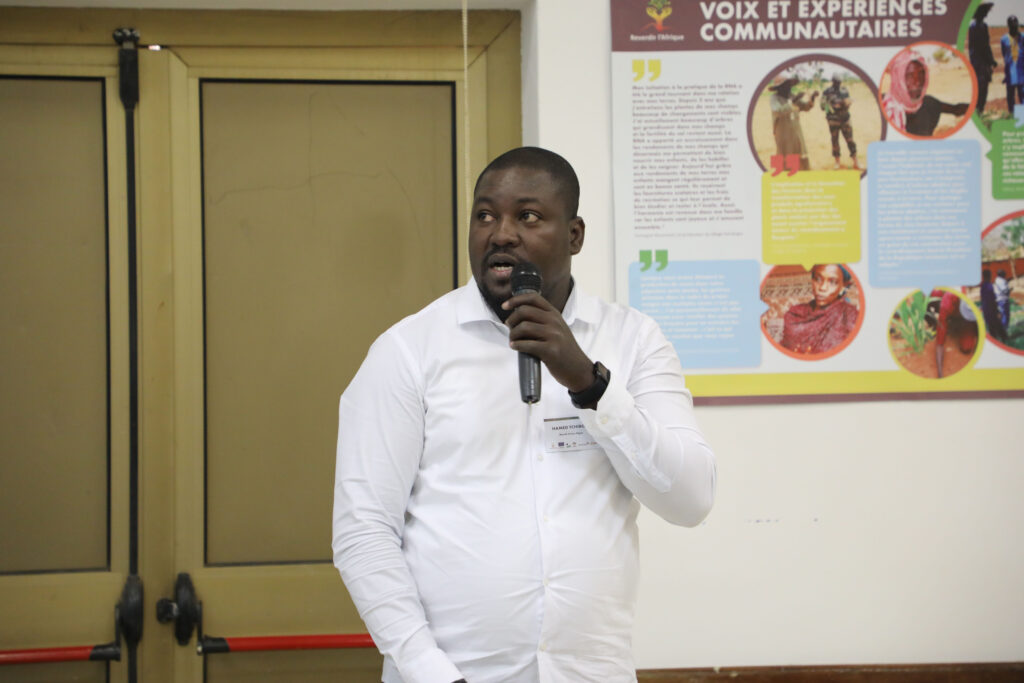 Hamed Tchizobo, the Project Coordinator at World Vision Niger. Photo: Regreening Africa/Koffi Gilberte
Hamed Tchizobo, the Project Coordinator at World Vision Niger. Photo: Regreening Africa/Koffi Gilberte
For more information on the workshop, including the workshop report and resources please follow this link.
This story was produced with the financial support of the European Union. Its contents are the sole responsibility of Regreening Africa and do not necessarily reflect the views of the European Union.

